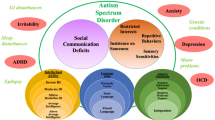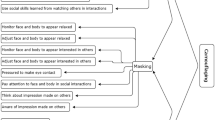Abstract
Objectives
The standard functional analysis (FA) has been regarded as the gold standard to identify the function of challenging behavior. The trial-based functional analysis (TBFA) is an alternative FA that takes less time to complete than the standard FA. The primary purpose of this study was to evaluate interrater reliability and convergent validity of the TBFA by comparing it with the standard FA.
Method
First, TBFA and standard FA were conducted on three young adults with neurodevelopmental disorders who displayed problem behavior. Then, three expert panelists analyzed and compared graphs depicting TBFA with 5, 10, 15, and 20 trials and standard FA graphs.
Results
Panelists reported that they were able to identify a behavior function using the TBFA; however, interrater reliability was substantially lower with 5 trials than for 10, 15, or 20 trials, and was highest with 10 trials. Results suggest that reliability of the TBFA may be improved by including more than five trials in the analysis. Results of the TBFA and standard FA converged for only one of the three participants. Lack of convergence may have been due, in part, to differences in presentation of establishing operations between the two assessments.
Conclusions
Although preliminary, it is possible that clinicians should consider using more than 5 trials when interpreting the function of problem behavior using the TBFA. Limitations and future research are discussed.




Similar content being viewed by others
References
Anderson, C. M., Weddle, S. A., Walsh, M. L., & Guglielmo, J. (2019). Investigation of functional analysis methodology in adult service programs to develop efficient and effective treatment approaches. Advances in Neurodevelopmental Disorders, 3, 386–396. https://doi.org/10.1007/s41252-019-00118-w.
Beavers, G. A., Iwata, B. A., & Lerman, D. C. (2013). Thirty years of research on the functional analysis of problem behavior. Journal of Applied Behavior Analysis, 46(1), 1–21. https://doi.org/10.1002/jaba.30.
Bloom, S. E., Iwata, B. A., Fritz, J. N., Roscoe, E. M., Carreau, A. B., & Zarcone, J. (2011). Classroom application of a trial-based functional analysis. Journal of Applied Behavior Analysis, 44(1), 19–31. https://doi.org/10.1901/jaba.2011.44-19.
Bloom, S. E., Lambert, J. M., Dayton, E., & Samaha, A. L. (2013). Teacher-conducted trial-based functional analyses as the basis for intervention. Journal of Applied Behavior Analysis, 46(1), 208–218. https://doi.org/10.1002/jaba.21.
Cooper, J. O., Heron, T. E., & Heward, W. L. (2020). Applied behavior analysis (3rd ed.). Harlow: Pearson/Merrill Prentice Hall.
Curtis, K. S., Forck, K. L., Boyle, M. A., Fudge, B. M., Speake, H. N., & Pauls, B. P. (2020). Evaluation of a trial-based interview-informed synthesized contingency analysis. Journal of Applied Behavior Analysis, 53(2), 635–648. https://doi.org/10.1002/jaba.618.
DeLeon, I. G., & Iwata, B. A. (1996). Evaluation of a multiple-stimulus presentation format for assessing reinforcer preferences. Journal of Applied Behavior Analysis, 29(4), 519–533. https://doi.org/10.1901/jaba.1996.29-519.
Dowdy, A., & Tincani, M. (2020). Assessment and treatment of high-risk challenging behavior of adolescents with autism in an aquatic setting. Journal of Applied Behavior Analysis, 53(1), 305–314. https://doi.org/10.1002/jaba.590.
Flynn, S. D., & Lo, Y. (2016). Teacher implementation of trial-based functional analysis and differential reinforcement of alternative behavior for students with challenging behavior. Journal of Behavioral Education, 25(1), 1–31. https://doi.org/10.1007/s10864-015-9231-2.
Gerow, S., Rispoli, M., Gregori, E., & Sanchez, L. (2019). Parent-implemented trial-based functional analysis for young children with ASD. Focus on Autism and Other Developmental Disabilities, 34(1), 29–40. https://doi.org/10.1177/1088357618755695.
Hagopian. (2020). The consecutive controlled case series: design, data-analytics, and reporting methods supporting the study of generality. Journal of Applied Behavior Analysis, 53(2), 596–619. https://doi.org/10.1002/jaba.691.
Heath Jr., H., & Smith, R. G. (2019). Precursor behavior and functional analysis: a brief review. Journal of Applied Behavior Analysis, 52(3), 804–810. https://doi.org/10.1002/jaba.571.
Iwata, B. A., Dorsey, M. F., Slifer, K. J., Bauman, K. E., & Richman, G. S. (1982/1994). Toward a functional analysis of self-injury. Journal of Applied Behavior Analysis, 27(2), 197–209. https://doi.org/10.1901/jaba.1994.27-197.
Jessel, J., Metras, R., Hanley, G. P., Jessel, C., & Ingvarsson, E. T. (2020). Evaluating the boundaries of analytic efficiency and control: a consecutive controlled case series of 26 functional analyses. Journal of Applied Behavior Analysis, 53(1), 25–43.
Jessel, J., Hanley, G. P., & Ghaemmaghami, M. (2019). On the standardization of the functional analysis. Behavior Analysis in Practice, 13, 205–216. https://doi.org/10.1007/s40617-019-00366-1.
Jessel, J., Hanley, G. P., & Ghaemmaghami, M. (2016). Interview-informed synthesized contingency analyses: thirty replications and reanalysis. Journal of Applied Behavior Analysis, 49(3), 576–595. https://doi.org/10.1002/jaba.316.
Johnston, J. M., & Pennypacker, H. S. (2009). Strategies and tactics of behavioral research (3rd ed.). New York: Routledge.
Lambert, J. M., Bloom, S. E., & Irvin, J. (2012). Trial-based functional analysis and functional communication training in an early childhood setting. Journal of Applied Behavior Analysis, 45(3), 579–584. https://doi.org/10.1901/jaba.2012.45-579.
LaRue, R. H., Lenard, K., Weiss, M. J., Bamond, M., Palmieri, M., & Kelley, M. E. (2010). Comparison of traditional and trial-based methodologies for conducting functional analyses. Research in Developmental Disabilities, 31(2), 480–487. https://doi.org/10.1016/j.ridd.2009.10.020.
Ledford, J. R., & Gast, D. L. (Eds.). (2018). Single case research: applications in special education and behavioral sciences (3rd ed.). Mahawh, NJ: Routledge.
LeJeune, L. M., Lambert, J. M., Lemons, C. J., Mottern, R. E., & Wisniewski, B. T. (2019). Teacher-conducted trial-based functional analysis and treatment of multiply controlled challenging behavior. Behavior Analysis: Research and Practice, 19(3), 241–246. https://doi.org/10.1037/bar0000128.
Lloyd, B. P., Wehby, J. H., Weaver, E. S., Goldman, S. E., Harvey, M. N., & Sherlock, D. R. (2015). Implementation and validation of trial-based functional analyses in public elementary school settings. Journal of Behavioral Education, 24(2), 167–195. https://doi.org/10.1007/s10864-014-9217-5.
Mercer, S. H., McIntosh, K., & Hoselton, R. (2017). Comparability of fidelity measures for assessing tier 1 school-wide positive behavioral interventions and supports. Journal of Positive Behavior Interventions, 19(4), 195–204. https://doi.org/10.1177/1098300717693384.
Rispoli, M., Brodhead, M., Wolfe, K., & Gregori, E. (2018). Trial-based functional analysis informs treatment for vocal scripting. Behavior Modification, 42(3), 441–465. https://doi.org/10.1177/0145445517742882.
Rispoli, M., Neely, L., Healy, O., & Gregori, E. (2016). Training public school special educators to implement two functional analysis models. Journal of Behavioral Education, 25(3), 249–274. https://doi.org/10.1007/s10864-016-9247-2.
Rispoli, M., Ninci, J., Neely, L., & Zaini, S. (2014). A systematic review of trial-based functional analysis of challenging behavior. Journal of Developmental and Physical Disabilities, 26(3), 271–283. https://doi.org/10.1007/s10882-013-9363-z.
Saini, V., Fisher, W. W., Retzlaff, B. J., & Keevy, M. (2020). Efficiency in functional analysis of problem behavior: a quantitative and qualitative review. Journal of Applied Behavior Analysis, 53(1), 44–66. https://doi.org/10.1002/jaba.583.
Sigafoos, J., & Saggers, E. (1995). A discrete-trial approach to the functional analysis of aggressive behaviour in two boys with autism. Journal of Intellectual and Developmental Disability, 20(4), 287–297. https://doi.org/10.1080/07263869500035621.
Tincani, M., Lorah, E., & Dowdy. (2018). Functional behavior assessment. Austin, TX: Pro-Ed.
Wallace, M. D., & Iwata, B. A. (1999). Effects of session duration on functional analysis outcomes. Journal of Applied Behavior Analysis, 32(2), 175–183. https://doi.org/10.1901/jaba.1999.32-175.
Author information
Authors and Affiliations
Contributions
AD was responsible for setting up the study, acquiring and analyzing the data, and writing the manuscript. MT and AGF collaborated in setting up the study and/or analyzing the data and writing/editing the manuscript.
Corresponding author
Ethics declarations
Conflict of Interest
The authors declare that they have no conflict of interest.
Ethical Approval
Approval for the study was obtained from the Institutional Review Board at Temple University in Philadelphia, PA. All procedures performed were in accordance with the ethical standards of the institutional and/or national research committee and with the 1964 Helsinki Declaration and its later amendments or comparable ethical standards.
Informed Consent
Written informed consent for the participants’ involvement in the study was obtained from them or their legal representatives.
Additional information
We thank the reviewers for their thoughtful comments and suggestions.
Publisher’s Note
Springer Nature remains neutral with regard to jurisdictional claims in published maps and institutional affiliations.
Electronic Supplementary Material
ESM 1
Standard Functional Analyses (DOCX 47 kb)
Rights and permissions
About this article
Cite this article
Dowdy, A., Tincani, M. & Fisher, A.G. Interrater Reliability and Convergent Validity of the Trial-Based Functional Analysis. Adv Neurodev Disord 5, 61–70 (2021). https://doi.org/10.1007/s41252-020-00174-7
Published:
Issue Date:
DOI: https://doi.org/10.1007/s41252-020-00174-7




